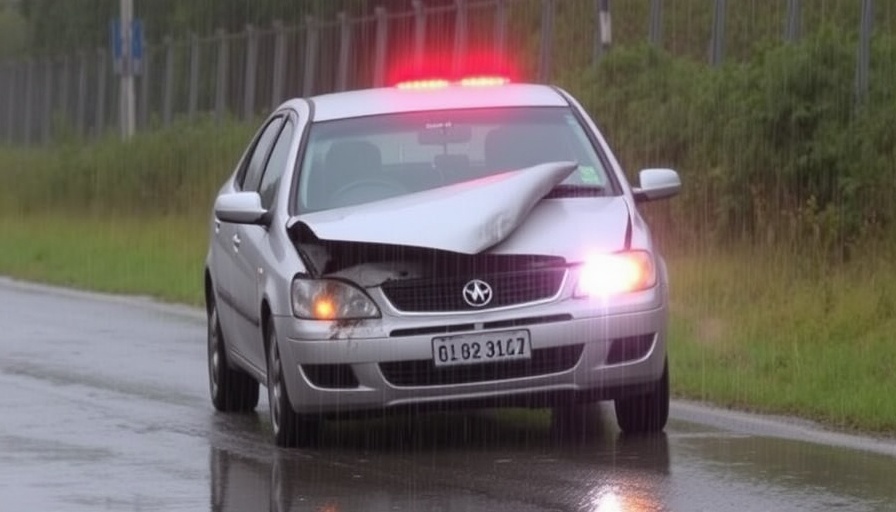
Tragedy Strikes: The Fatal Mpumalanga Crash
A heartbreaking incident unfolded in Mpumalanga as a car crash took the lives of five individuals, including a toddler. This alarming event occurred mere hours after the province's MEC urged caution to motorists due to the adverse wet weather conditions. The collision highlights ongoing issues related to road safety and the consequences of neglecting safety protocols, particularly under severe weather circumstances.
Contextualizing the Tragedy: Wet Weather Risks
Road safety is a critical and often overlooked issue in South Africa, particularly with the onset of seasonal rains that exacerbate hazardous driving conditions. The recent caution from the MEC serves as a grim reminder that drivers must remain vigilant. Despite public safety campaigns and awareness drives, many motorists continue to underestimate the effects of wet weather on vehicle handling and stopping distances, leading to disastrous outcomes.
The Broader Implications of Road Safety
This tragic crash doesn’t occur in isolation. Statistical data from the Road Traffic Management Corporation indicates an alarming trend in road fatalities, with South Africa recording thousands of deaths annually due to road incidents. Factors such as increased driver fatigue, speeding, and vehicle maintenance issues compound the situation, suggesting a systemic failure in both enforcement and public compliance with road safety regulations.
Corruption and Infrastructure: Unresolved Challenges
Underlying systemic issues such as corruption within local government structures have left many communities with poor road infrastructure, lacking necessary maintenance and safety features. Current investigations into various layers of governance, from municipal to national levels, reveal a troubling connection between corruption and deteriorating public services. Such issues directly impact the safety of citizens, with finances often misallocated or poorly managed.
Voices from the Streets: Community Perspectives
The community response to the Mpumalanga crash signals a deeper frustration with government accountability. Social media platforms buzzed with calls for increased vigilance from authorities and more robust safety measures. Residents argue that without proper oversight and stringent regulations, tragedies like this will continue to plague the nation. Community forums have been urging stakeholders to prioritize investment in road safety initiatives and public awareness campaigns.
Future Predictions: Road Safety Initiatives Required
The disastrous fatalities in Mpumalanga could ignite further dialogue surrounding road safety reforms. Experts predict that if significant changes—including educational programs on wet-weather driving and stricter enforcement of safety regulations—are not implemented, the death toll from road accidents may continue its relentless rise. Input from road safety advocates suggests a multi-faceted approach that includes improved vehicle standards, public awareness campaigns, and robust infrastructure investments.
Taking Action: What Can We Do?
In light of this tragedy, it becomes paramount that the government, alongside citizens, engage in constructive discussions surrounding road safety and community accountability. Individuals can contribute by participating in local safety forums, supporting legislation aimed at improving road infrastructure, and spreading awareness about driving safely in adverse weather conditions. Additionally, advocating for transparency in the use of funds allocated for road maintenance can help address gaps in deliverables.
As South Africa approaches national elections, the electorate must hold candidates accountable, emphasizing policies that prioritize public safety and infrastructure improvements. Only through collective determination can the tragic loss of lives be a catalyst for meaningful change.
 Add Row
Add Row  Add
Add 




Write A Comment